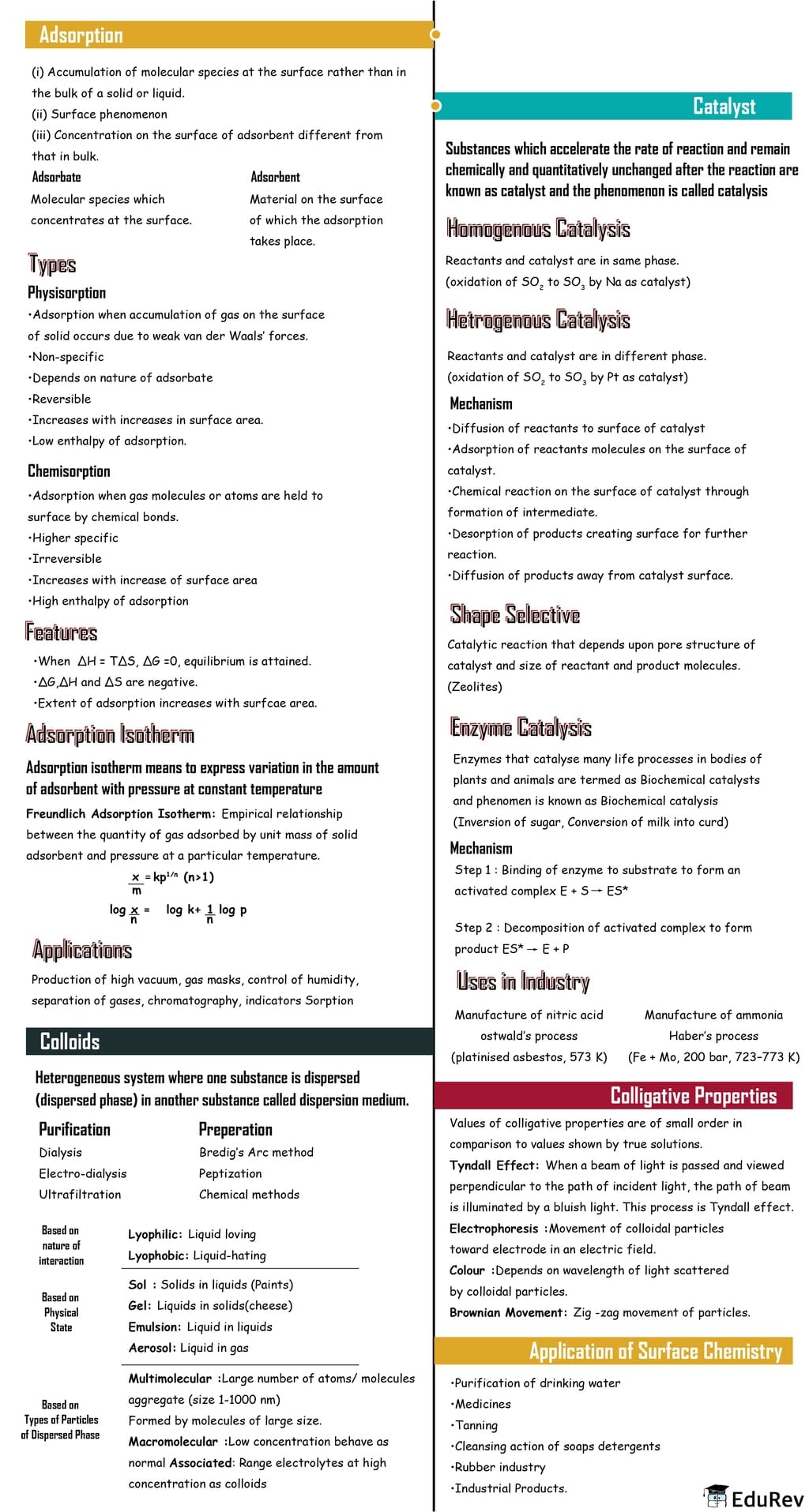NEET Exam > NEET Notes > Chemistry Class 12 > Mindmap: Surface Chemistry (Old NCERT)
Mindmap: Surface Chemistry (Old NCERT) | Chemistry Class 12 - NEET PDF Download

The document Mindmap: Surface Chemistry (Old NCERT) | Chemistry Class 12 - NEET is a part of the NEET Course Chemistry Class 12.
All you need of NEET at this link: NEET
|
108 videos|286 docs|123 tests
|
FAQs on Mindmap: Surface Chemistry (Old NCERT) - Chemistry Class 12 - NEET
| 1. What is surface chemistry? |  |
Ans. Surface chemistry is a branch of chemistry that deals with the study of chemical reactions and processes that occur at the interface of two phases, such as solid-liquid, solid-gas, or liquid-gas. It focuses on the behavior of molecules and atoms at the surface of materials.
| 2. What are the applications of surface chemistry? |  |
Ans. Surface chemistry has several applications in various fields. Some of the common applications include catalysis, corrosion prevention, drug delivery systems, nanoparticle synthesis, wastewater treatment, and the development of new materials with specific surface properties.
| 3. How does surface chemistry affect the properties of materials? |  |
Ans. Surface chemistry plays a crucial role in determining the properties of materials. It can influence surface tension, adsorption, reactivity, wetting behavior, and surface energy. These factors can significantly impact the durability, stability, and functionality of materials in various applications.
| 4. What is adsorption in surface chemistry? |  |
Ans. Adsorption is a process in surface chemistry where molecules or ions from a gas or liquid phase adhere to the surface of a solid or liquid phase. It occurs due to attractive forces between the adsorbate (molecules/ions) and the adsorbent (solid/liquid surface). Adsorption can be classified as physisorption or chemisorption, depending on the strength of the bonding between the adsorbate and adsorbent.
| 5. How does surface chemistry contribute to environmental protection? |  |
Ans. Surface chemistry plays a vital role in environmental protection. It is involved in the development of effective catalysts for pollution control, such as catalytic converters in vehicles. Surface chemistry also contributes to the design of adsorbents and membranes for wastewater treatment, removal of pollutants from air and water, and the development of sustainable energy sources through processes like photocatalysis and electrocatalysis.

|
Explore Courses for NEET exam
|

|
Signup for Free!
Signup to see your scores go up within 7 days! Learn & Practice with 1000+ FREE Notes, Videos & Tests.
Related Searches

















